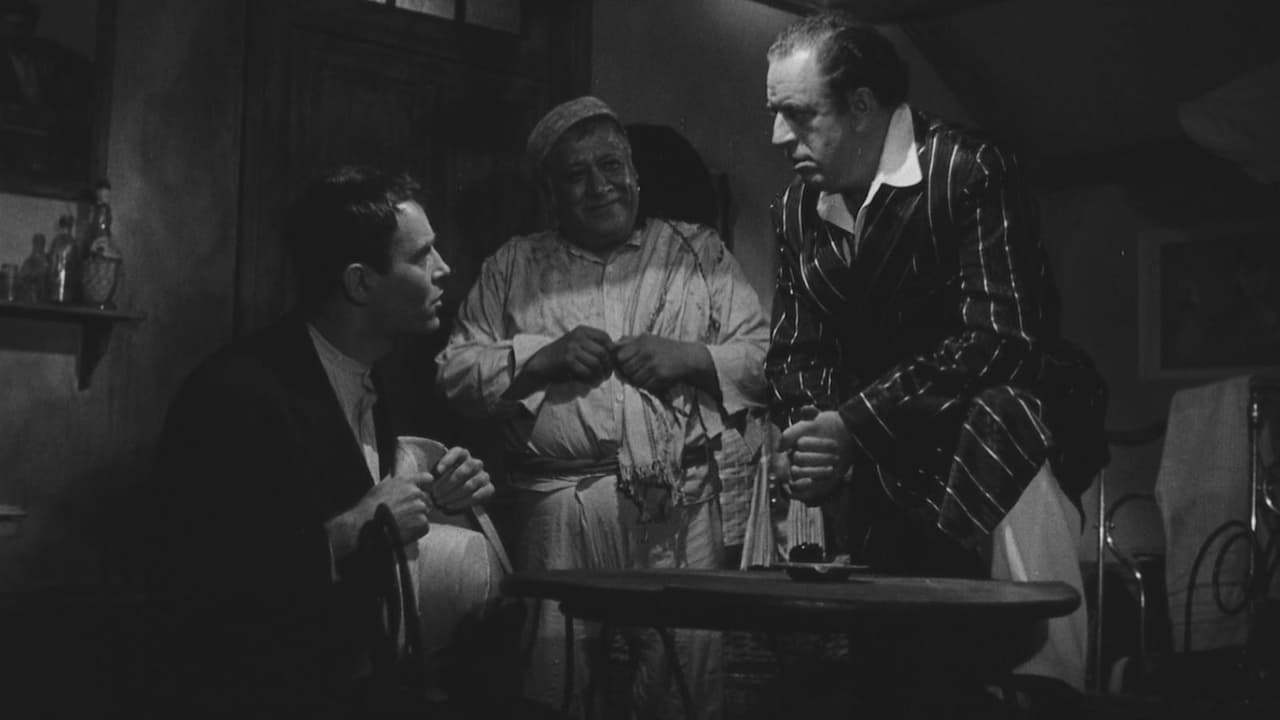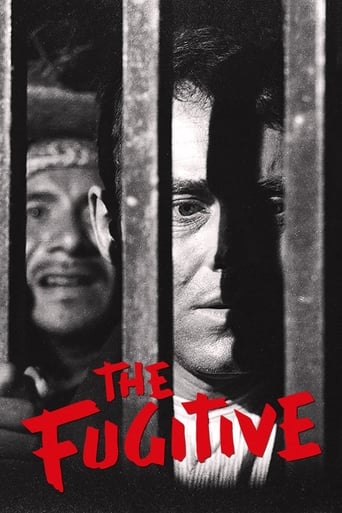

Excellent, Without a doubt!!
... View MoreAn absolute waste of money
... View MoreOne of the best movies of the year! Incredible from the beginning to the end.
... View MoreGreat movie. Not sure what people expected but I found it highly entertaining.
... View MoreDirected by John Ford, "The Fugitive" from 1947 is based on the Graham Greene novel and concerns a priest (Henry Fonda) in Central America trying to escape the authorities. Christianity has been denounced, and all the priests have been shot.The priest meets an Indian woman (Delores del Rio) who has an illegitimate baby, and she explains that none of the babies in the town have been baptized. He baptizes them, but the next day, the authorities see the water in the font and that the candles have been burned and heighten their search. The priest has now disguised himself and goes to Puerto Grande, where he can board a ship for America. However, he winds up on the run again.Not one of Ford's top films, but highly recommended because it is Ford and his amazing artist's eye for framing a shot. The photography is breathtaking; of course, it's hard to go wrong with the gorgeous Delores del Rio. She gives a wonderful performance, as does Fonda as a haunted, hunted man.There are a lot of chases, some singing, not a lot of dialogue, and it's a somber film. There are other Ford films I like better, but all of his work is worth seeing.
... View MoreIn his interviews with such well-meaning young aesthetes as Peter Bogdanovich, John Ford always chose to play dumb --portraying himself as a tough no-nonsense, hard-drinking old Irishman who just happened to "make Westerns." That lovable wise man with his mono-syllabic answers to their solemn questions, the drink in hand, the patch over one eye, pretended to have no idea whatsoever what those intellectuals from film school and glossy magazines were talking about. But as this film demonstrates, under that gruff exterior old man Ford obviously had once had a hidden desire to do what all the kids were trying to do a generation later -i.e. make Cinema Art with a capitol "C" and a capitol "A." This film made under the banner of his own Argosy Productions is, sad to say, not Ford at his best. It's too bad because at his best, at his greatest, he was a supremely gifted visual story-teller who rarely drew attention to himself and his effects. This ponderously paced film, aglow with the heavenly light created by the Mexican cinematographer, Gabriel Figueroa, and the syrupy old-fashioned symphonic score by Richard Hageman is always on the brink of sentimental piety and artistic pretension; often it falls flat on its face or over the edge. Figueroa who started as an Edward Tisse's assistant on Eisenstein's Mexican experiment "Che Viva Mexico" indulges in the same lined-faces of the noble peons style of photography that we see in that arty Russian film. How different then is the work of Ford's occasional collaborator, the great Greg Toland (said to have mentored Figueroa as well) who photographed "Long Voyage Home" and "Grapes of Wrath," as well as Welles' "Citizen Kane." In those films, the shadows and light serve the story, but in this one Figueroa's photography, however beautiful to see, simply overtakes the film by exaggerating all the absurd Sunday School symbolism.
... View MoreHenry Fonda plays a priest on the run from the government after brainwashing people into believing god exists, in fact he actually believe he is right. this has to be the worst John Ford movie ever. it had absolutely nothing going for it. boring crap all the way. the religious glorification made me sick to my stomach. i usually don't react that way too those kinds of movies. but this one was just barfing out loads of holiness and made the priest look like the messiah or some crap. avoid at all costs! especially if you like john Ford's movies, because this film was so beneath him that i suspect he was brain damaged by alcohol during the shoot. ignore the ghastly reviews that says this is a so called masterpiece. IT'S NOT!!!
... View MoreMove over, Harrison Ford; your namesake John got here first. While comparisons with Andrew Davis' action-packed 1993 thriller are inevitable in discussing 'The Fugitive (1947),' the two films aside from the similarity described in their shared title are completely unrelated, and about as different as two films could possibly be. Unlike many of the Westerns that brought director John Ford his greatest fame, 'The Fugitive' is entirely unconcerned with any form of action or dialogue; Ford's film-making is so concentrated on establishing the correct emotional atmosphere for each scene that it occasionally strays into tedium. However, it was obviously a very personal project for the Ford who once called it "perfect" and it's difficult to criticise a film into which the director poured so much passion and resolve. The story was adapted from Graham Greene's 1940 novel, "The Power and the Glory" {a.k.a. "The Labyrinthine Ways"} and concerns the plight of a victimised Christian priest, in an unnamed Latin American country where religion has been outlawed.Perhaps the film's greatest weakness, from my reasoning at least, is that it is so concerned with painting each character as an icon or ideal (few characters are afforded names, and are instead credited with indefinite articles; "a fugitive," "a lieutenant of police," "an Indian woman") that it's hard to sympathise with them. Fortunately, while consistently attempting to maintain each character as a "timeless" figure in the film's ageless story, Dudley Nichols's screenplay avoids the usual stereotypes to which most amateur filmmakers would inevitably resort. The Fugitive (Henry Fonda) is not a courageous, humble pillar of human decency, but a misguided clergy driven by an unconscious self-pride; his adversary, the Lieutenant of Police (Pedro Armendáriz), loves his country and its people deeply, but, guided by a fierce blind patriotism and an illogical hatred of religion, he is often misled towards acts of sheer barbarity. The Police Informer (J. Carrol Naish) is a Judas-like character, betraying The Fugitive to the authorities, and becoming inescapably repentant at the thought of his inhumanity.Despite not being particularly religious myself, I was sufficiently moved by Christianity's noble plight for survival, though I wasn't overly fond of the film's ultimate assertion that the lieutenant's hatred of religion stems directly from his secretly believing in God but being unwilling to admit it. Nevertheless, if you're going to watch 'The Fugitive,' it will most certainly be for the photography, which is, captured by Mexican cinematographer Gabriel Figueroa, indescribably breathtaking. The opening sequence, in which The Fugitive returns to his former church, the light streaking through the windows as though God himself is reaching into the forsaken depths of the building, is spellbinding in its beauty. While Armendáriz is charismatic, and even slightly sympathetic, in his role of the antagonist, Henry Fonda largely looks awkward in the lead role (though you could argue that this uneasiness is integral to his character), and most of the other players perhaps due to a language barrier are similarly stilted. A visual masterpiece this film may be, and certainly an overall interesting watch, but 'The Fugitive' remains inferior Ford.
... View More